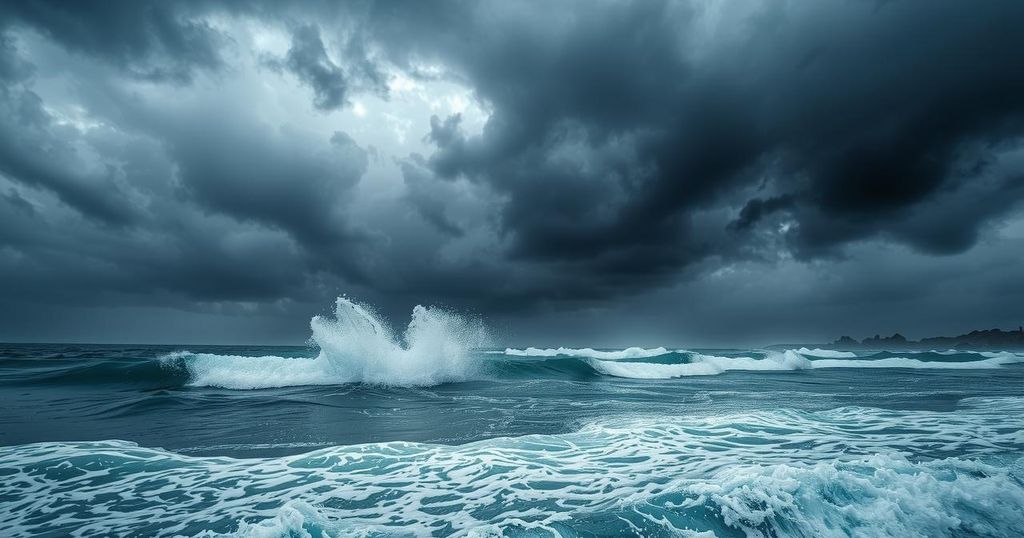Cyclone Jude Strikes Northern Mozambique: A Third Cyclone in Four Months
Northern Mozambique faces its third cyclone in four months, as Cyclone Jude made landfall, causing severe weather conditions. With winds of up to 195 kilometers per hour, it has since weakened to a tropical storm. Past cyclones have caused significant casualties and destruction, highlighting ongoing challenges in the cyclone season.
On Monday, heavy rains and strong winds struck northern Mozambique due to Cyclone Jude, marking the region’s third cyclone within a four-month span. According to the National Institute of Meteorology (INAM), Cyclone Jude made landfall with winds reaching 140 kilometers (87 miles) per hour and gusts up to 195 kilometers per hour. The cyclone subsequently weakened to a severe tropical storm characterized by thunderstorms.
As of Monday afternoon, no casualties had been reported. Cyclone season in the southwestern Indian Ocean typically occurs from November to April, with approximately twelve storms expected annually. Previous cyclones, such as Cyclone Chido in December, resulted in the deaths of at least 120 individuals and the destruction of nearly 120,000 homes, as indicated by official statistics.
Additionally, Cyclone Dikeledi, which occurred in mid-January, caused five fatalities and damaged nearly 3,500 homes. The regional cyclone center located in the French Indian Ocean island of La Reunion advised that over the coming days, Cyclone Jude is likely to weaken as it moves inland, remaining near the Mozambique-Malawi border. There is a warning that the cyclone could intensify as it progresses southwest towards Madagascar.
Cyclone Jude has further exacerbated the challenges faced by northern Mozambique, being the third cyclone to impact the region in four months. With previous cyclones, including Chido and Dikeledi, causing significant loss of life and destruction, the ongoing cyclone season continues to pose a severe threat to communities. Authorities remain vigilant as Cyclone Jude moves inland and toward Madagascar, monitoring for potential intensification.
Original Source: www.ecr.co.za




Post Comment